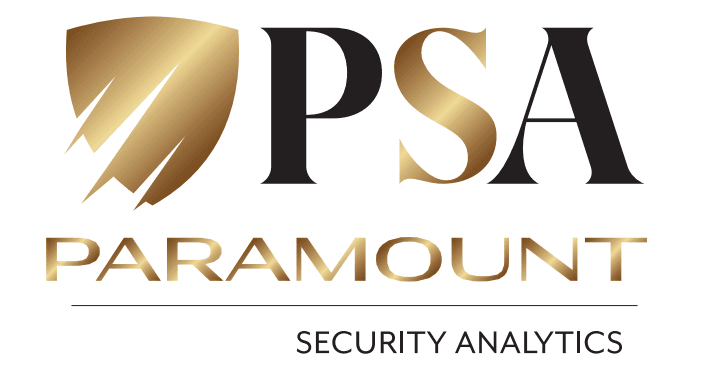Law Enforcement vs Private Executive Security: Key Differences

Posted on August 3rd, 2023
Greetings from the team at Paramount Security Analytics, the preeminent provider of executive security services right here in the heart of Chicago, Illinois!
Today, we're turning our attention to an intriguing, yet oftentimes misunderstood topic, one that our readers and clients frequently ask about - the distinctions between law enforcement and private executive security. With a myriad of Hollywood portrayals and real-world misconceptions, it can be tricky to navigate these waters.
With our extensive industry experience, comprehensive understanding, and a team of dedicated professionals, we're uniquely positioned to provide a clear, concise explanation of these differences. Whether you're an existing client looking to better understand the nature of the services we provide, a business executive exploring options for personal security, or just a curious reader, this article is for you.
So, sit back, get comfortable, and join us as we demystify the complex world of public and private security, and unveil the key contrasts between law enforcement and private executive security.
Let's get started!
What is Law Enforcement?
In the grand scheme of public safety, law enforcement represents agencies that are government-owned and operated. This includes your local police departments, state troopers, federal agencies like the FBI and DEA, and so forth. These entities are funded by taxpayer dollars and have a responsibility to uphold the law, prevent crime, and maintain public order.
Law enforcement officers are trained to respond to a wide array of situations, from minor traffic violations to major criminal offenses. They are typically reactive, meaning they respond to incidents that have already occurred, although community policing efforts are designed to be more proactive and preventive.
What is Private Executive Security?
On the other hand, executive security, sometimes referred to as executive protection security or executive security protection, is a specialized form of protection provided to individuals who may be exposed to elevated personal risk because of their employment, celebrity status, wealth, associations, or geographical location.
Private executive security services are offered by professional security companies, such as Paramount Security Analytics. These services are highly personalized, often involving a detailed risk assessment and customized security plan to address the unique security needs of each individual client. The aim is to ensure the safety of the individual at all times, whether they are at home, at work, or traveling.
A Closer Look at Key Differences
Now that we've laid the groundwork by defining what law enforcement and private executive security are, we can dive deeper into their key differences. Each of these services operates with a distinct focus, performs varied roles, and has unique obligations.
Let's explore these differences further to give you a better understanding of their unique characteristics and how they contribute to your safety in different capacities.
Operational Focus
Law enforcement is primarily focused on protecting the community as a whole. Their role includes enforcing laws, preventing crime, investigating crimes that have occurred, and maintaining public order. They operate under the public sector's jurisdiction and are responsible for the general safety of all citizens in their area of control.
Private executive security, in contrast, is solely focused on the individual they are contracted to protect. Executive security services have a more preventative focus, identifying and mitigating risks before they can pose a threat to the client. This approach can involve everything from advance planning and risk assessment, to protection details, to secure transportation.
Nature of Role
Law enforcement officers hold a public office and possess powers conferred by the state, including the ability to arrest, the right to investigate, and the authority to use force when necessary. Their goal is to enforce the law and maintain public order.
Private executive security personnel, on the other hand, are primarily concerned with the safety and well-being of their clients. While they don't have the same powers as law enforcement officers, they are trained to handle a variety of situations. Their roles may include providing close protection, conducting security assessments, planning secure travel routes, and even providing emergency medical aid.
Obligation and Commitment
Law enforcement officers have a broad obligation to the public and are usually governed by departmental policies and procedures. They respond to service calls and emergencies, but can't provide continuous, personalized protection to any one individual due to their commitment to the wider community.
Private executive security offers a level of personal protection that law enforcement typically can't provide. They offer 24/7 dedicated protection to their clients, with a commitment to their safety above all else. The executive security protection team tailors its approach to suit the lifestyle, needs, and preferences of the individual, while minimizing risk and disruption.
Conclusion
In conclusion, while both law enforcement and private executive security play crucial roles in maintaining safety and order, they operate quite differently. Law enforcement is a public entity with a broad responsibility to enforce the law and maintain public order, while executive security services offer specialized, personal protection to individuals who require an additional level of security.
If you're in need of top-tier executive security services, or if you want to learn more about the differences between law enforcement and private executive security, don't hesitate to get in touch with us at Paramount Security Analytics. Our team of highly experienced and trained professionals are ready to provide you with the best executive protection security available.
Call us at (800) 511-0594 or email us at [email protected]. Your safety is our highest priority, and we're always here to help you feel secure and protected.
Send a Message
We're ready to answer any quesions you may have. Let's us protect you!
